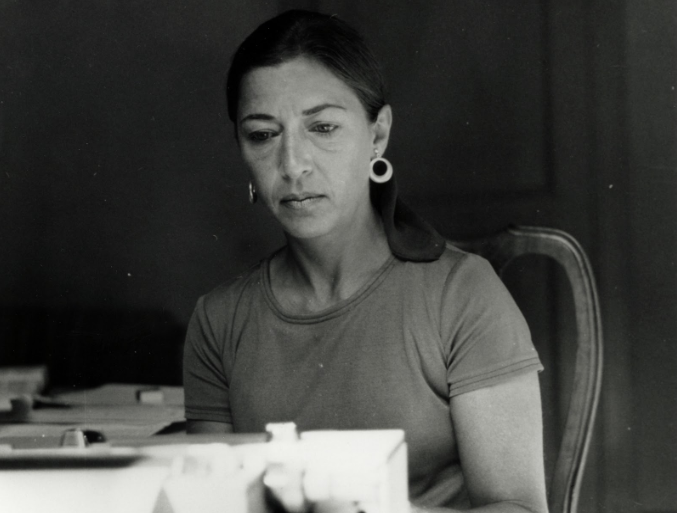RBG: Her Life–Now Her Death–Impacting Nation
September 25, 2020
“If you want to be a true professional, you will do something outside yourself. Something to repair tears in your community. Something to make life a little better for people less fortunate than you. That’s what I think a meaningful life is—living not for oneself, but for one’s community.”
These were the powerful words of the late Associate Justice, Ruth Bader Ginsburg, who, on Sep. 18, lost her months-long bout with metastatic pancreatic cancer at age 87.
The second woman to serve on the Supreme Court, and the longest one at that, Ginsburg became a hero for countless women.
Despite being diagnosed with cancer for the fifth time this May, she vowed to continue her duties on the Court, working full time while still receiving cancer treatment.
A proud feminist and champion of civil rights, Ginsburg’s reputation as a fierce advocate for justice was made during her time as a Washington lawyer.
As a lawyer, she founded the ACLU’s Women’s Rights Project and argued six landmark women’s rights cases before the Supreme Court, winning five, and forever helping eliminate barriers to women in the workplace and civic life.
Her appointment came in the early 1990s under President Clinton, joining the Court’s first female justice—Sandra Day O’Connor.
Ginsburg’s record on the Court has been described as thoughtful, measured, and strategic.
Her professional demeanor, immense intellect and careful attention to detail drew praise from both sides of the aisle.
In her 27 years on the Court, Ginsburg developed a reputation as someone who delivered countless fierce dissents, including those in landmark decisions such as Bush v. Gore, which decided the 2000 election, Citizens United v. FEC, which restricts the government from regulating corporate campaign donations and Shelby County v. Holder, which waived the 1967 Voting Rights Act’s pre-clearance requirements for counties with histories of discriminating against non-white voters.
In addition to her historic dissents, she wrote the Court’s majority opinion in United States v. Virginia, striking the Virginia Military Institute’s policy of refusal to admit women into their ranks, and helped make up the 6-3 majority decision in June’s Harris Funeral Homes Inc. v. EEOC and Aimee Stephens, a landmark decision that expanded the protections of the 1964 Civil Rights Act to LGBTQ employees.
In 2006, with the retirement of Justice Sandra Day O’Connor, Ginsburg became the only female justice on an otherwise all-male Court.
As the de-facto leader of the “liberal wing,” she was the Court’s only female voice from 2006-2009 before then-President Obama appointed justices Sonia Sotomayor and Elena Kagan.
Her stardom on the Court was built through her leadership, history as an advocate for women’s rights and thoughtful deliberations.
Meanwhile, as Ginsburg lies in state at the U.S. Capitol, her passing has caused a political earthquake, with President Trump and Senate Republicans scrambling to replace the seat before the results of the November election and cement a 6-3 conservative majority on the Court for years to come.
The decision to replace the vacant seat before the result of the general election comes as a complete reversal from 2016, when then-President Obama moved to nominate Merrick Garland, a moderate D.C. circuit court judge, to fill the seat vacated by Supreme Court-veteran and personal friend of Ginsburg, Antonin Scalia, but was barred from doing so by Senate Majority Leader Mitch McConnell (R-KY).
In 2016, McConnell went on the public record saying, “We believe that the American people should seize the opportunity to weigh in on whom they trust to nominate the next person for a lifetime appointment to the Supreme Court,” in reference to the on-going prize fight between then-candidate Trump and former Secretary of State Hillary Clinton.
This newly-established precedent for Senate procedure, dubbed the “McConnell Rule,” was used to stonewall Garland’s nomination to the Court, and has been all but scrapped for 2020, when the GOP stands poised to appoint a new justice of their own.
The political fallout surrounding her death has once again become a point of heated political debate, with the assumption that issues such as the Affordable Care Act’s “individual mandate,” access to contraception, and the right to privacy, which enshrines the right to abortion, could fall under siege in the near future with a conservative-dominated Court.
In an era where an impeached president, elected by a minority of the country, and a Republican-led Senate, also elected by a minority of the country, are now in the position to solidify their grip on the government’s third branch, the Court’s legitimacy has been plunged into serious crisis.
With this understanding, to appoint and confirm a sixth conservative justice to the Court, would not only be ill-advised, but illogical.
Regardless of how and when the vacancy is filled, the Supreme Court as we have come to know it will be forever changed.
We owe it to Ginsburg, and all the women who came before her, to continue the fight for equal justice under law.







































